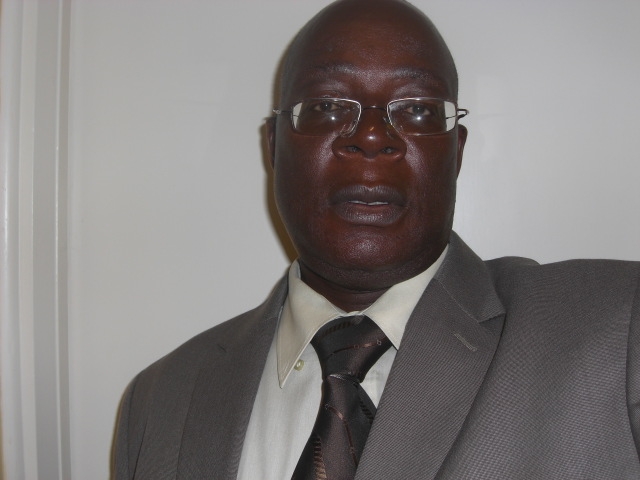The 5th IASTED African Conference on
Environment and Water Resource Management
AfricaEWRM 2014
September 1 – 3, 2014
Gaborone, Botswana
KEYNOTE SPEAKER
Beyond 2015: Key imperatives for taking the WASH sector forward in Southern Africa
Abstract
Africa reportedly faces widespread poverty, food insecurity and crippling underdevelopment, with the majority of countries lacking the human, economic and institutional capacities to effectively develop and sustainably manage water resources. Regional disparities exist, though. Sub-Saharan Africa (SSA) will not achieve the MDG target on access to water, with just 61% coverage, which is way off the regional target of 75%. Only 30% have access to sanitation in SSA, with only a 4% increase from 1990. This results in many people lacking basic sanitation and engaging in open defecation and unsanitary solid waste disposal. Based on global development indicators and case studies, this paper reviews progress and strategies and how these have helped or failed Southern Africa in achieving its targets in water, sanitation and health (WASH) services.Two key drivers affect the sustainability of WASH services in Southern Africa. The first one is rapid annual population growth at above 2.0%. This has led to demand for urban housing far outstripping supply and slum dwellers accounting for over 60% of urban population. The rising population is driving demand for water and accelerating the degradation of water resources. Rapid and unplanned urban growth has increased the number of informal settlements on unstable, flood-prone, and high-risk land which is prone to hazards such as landslides, urban floods, and earthquakes. The other driver is poor economic growth and poverty. Most Southern Africa Development Community (SADC) countries rank among the lowest in the Human Development Index. Deep and widespread poverty is a direct threat to the provision of proper WASH services, sufficient water for economic activities and to the prevention of the deterioration of water quality.
The economic water scarcity prevailing in most SADC countries is compounded by lack of institutional, financial and human capacities for managing water. There is therefore a tough competition for public funding among key sectors, leaving NGOs and cooperating partners to set the agenda in the WASH sector. As a result, investment in genuine capacity development, science and research for development, and identification/adoption of appropriate technologies are rarely given attention, as reflected in the UNESCO Science Report. Most SADC countries are therefore falling significantly behind the trends required to meet their defined national access targets for sanitation and drinking-water. Domestic financing of WASH services is very minimal at <5% of national budgets, with sanitation the most affected. Lack of coordination among government agencies, caused by unclear roles and responsibilities, coupled with lack of harmonization of laws and policies related to WASH services have been cited. Inadequate staffing and poor remuneration in government departments have been noted. The SADC region generally has low rainfall which is highly seasonal, unevenly distributed across the region and there are frequent floods and droughts. Drought is the dominant climate risk and it destroys economic livelihoods and farmers food sources and has a significant negative effect on Gross Domestic Product. This paper argues that unless these imperatives are fully addressed through resilient and robust measures, and sufficient political will assured, the SADC region will continue to lag in WASH services
Biography of the Keynote Speaker

Prof. Innocent Nhapi is an expert in sanitary and environmental engineering with experience in project implementation, education and development. His experience includes working for a municipal council in Zimbabwe, for the University of Zimbabwe, the National Community Water and Sanitation Training Institute (NCWSTI) in South Africa and the WaterNet Project (regional capacity building project in Southern Africa). From October 2005 to October 2008, he was with the UNESCO-IHE Institute for Water Education as a Project Manager on an NPT-funded Water Resources and Environmental Management (WREM) project at the National University of Rwanda where he was involved in staff development and setting up MSc. and research programmes in Water Resources Engineering and Management. From 2009 to February 2013 he was with the Department of Civil Engineering, University of Zimbabwe as a SADC-WaterNet Professorial Chair in IWRM. In January 2014 he joined the Chinhoyi University of Technology in Zimbabwe. He has experience and research interests in catchment environmental planning, pollution prevention strategies, pollution modelling, and urban water systems management. He does consultancy work for the World Bank and others on urban water supply, sanitation and environmental planning and management.










